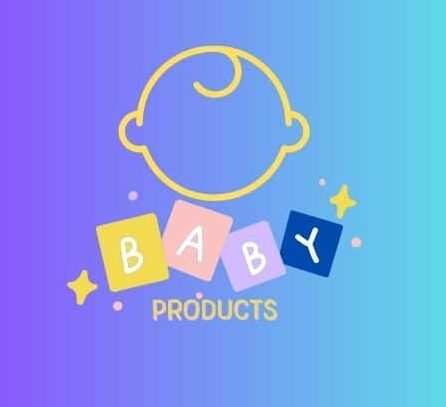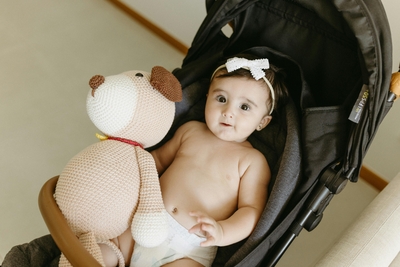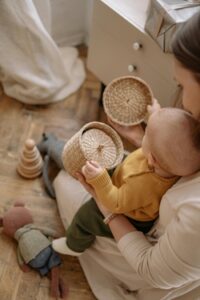Discover the Ultimate Guide to Eco-Friendly Baby Products for your baby’s need: Everything You Need to Know to Raise Your Little One Sustainably
In today’s world, where environmental consciousness is more crucial than ever, parents are increasingly turning to eco-friendly baby products alternatives for their baby’s needs. From diapers to clothing, toys to nursery furniture, the market now offers a wide array of sustainable options that not only benefit the planet but also ensure the health and well-being of your precious bundle of joy.
Are you a parent looking to make eco-conscious choices for your baby? Look no further! Our comprehensive guide covers everything you need to know about eco-friendly baby products, from diapers and clothing to toys and feeding essentials.
Learn how to identify truly sustainable products, understand eco-friendly materials and certifications, and explore top brands committed to environmental responsibility. Whether you’re a seasoned eco-warrior or just starting your journey towards sustainability, our guide will equip you with the knowledge and resources to raise your baby in harmony with the planet.
Top Brands for Eco-Friendly Baby Products
With the growing demand for sustainable and non-toxic products, many brands have emerged that specialize in eco-friendly baby items. Here are some of the top brands known for their commitment to quality, safety, and sustainability:
1. Burt’s Bees Baby
Burt’s Bees Baby is renowned for its organic cotton baby clothing and accessories. The brand prioritizes the use of 100% organic cotton, ensuring that their products are soft, durable, and gentle on your baby’s skin. Their commitment to sustainability extends to their packaging, which is made from recycled materials.
2. Eco Pea Co.
Eco Pea Co. offers a range of eco-friendly baby diapers and wipes that are biodegradable and hypoallergenic. Their products are free from harmful chemicals, making them safe for both your baby and the planet. Eco Pea Co. also uses sustainable packaging and practices to minimize their environmental footprint.
3. Green Toys
Green Toys is a popular brand that creates eco-friendly toys from 100% recycled plastic, primarily sourced from recycled milk jugs. Their toys are free from BPA, phthalates, and PVC, making them safe for children of all ages. Green Toys also focuses on local manufacturing in the USA, which helps reduce their carbon footprint.
4. Erbaviva
Erbaviva offers a range of organic skincare products designed specifically for babies and pregnant mothers. Their products are made with natural, organic ingredients and are free from synthetic fragrances, parabens, and other harmful chemicals. Erbaviva is committed to sustainable farming and ethical sourcing practices.
5. PlanToys
PlanToys is a leader in the eco-friendly toy industry, known for their high-quality wooden toys made from sustainably sourced rubberwood. The company uses non-toxic glues and water-based dyes, ensuring their toys are safe for children and the environment. PlanToys is also dedicated to ethical manufacturing and fair labor practices.
6. Natursutten
Natursutten specializes in natural rubber pacifiers, teethers, and baby bottles. Their products are made from sustainably harvested natural rubber and are free from harmful chemicals like BPA, phthalates, and PVC. Natursutten is committed to providing safe, natural products that support healthy development.
7. Earth Mama
Earth Mama is known for its organic, plant-based skincare products for babies and mothers. The brand offers a range of products, from diaper creams and lotions to herbal teas and supplements. Earth Mama is dedicated to transparency and sustainability, using certified organic ingredients and eco-friendly packaging.
Positive Impact of eco-friendly baby products:
The growing popularity of eco-friendly baby products is contributing significantly to reducing the environmental footprint of childrearing. By opting for these products, parents are choosing items that are made from sustainable materials, reducing waste, and minimizing harmful chemicals. This not only benefits the planet but also ensures a healthier and safer environment for babies, as they are exposed to fewer toxins and pollutants. Additionally, the demand for eco-friendly baby products encourages innovation and the development of more sustainable manufacturing practices within the industry.
Negative Impact of Eco-Friendly Baby Products:
While eco-friendly baby products offer benefits in terms of sustainability and reduced environmental impact, they can also come with higher price tags. This may create a barrier for some parents who are unable to afford these products, potentially exacerbating existing socioeconomic disparities. Additionally, the term “eco-friendly” can sometimes be misleading, with companies engaging in greenwashing tactics to market their products as environmentally friendly when they may not be entirely so. This can lead to confusion among consumers and undermine trust in the eco-friendly baby product market.
FAQs for Eco-Friendly Baby Products:
- What are eco-friendly baby products?
Eco-friendly baby products are items designed and manufactured with materials and processes that have minimal negative impact on the environment. These products are often made from sustainable, renewable, or biodegradable materials and are produced using eco-conscious methods.
- Why should I choose eco-friendly baby products?
Opting for eco-friendly baby products helps reduce your baby’s exposure to harmful chemicals and toxins commonly found in conventional products. Additionally, choosing these products supports sustainability efforts, reduces waste, and helps preserve the environment for future generations.
- What types of eco-friendly baby products are available?
Eco-friendly baby products encompass a wide range of items, including organic cotton clothing, bamboo feeding utensils, biodegradable diapers, natural skincare products, non-toxic toys, and sustainable nursery furniture.
- Are eco-friendly baby products safe for my child?
Yes, eco-friendly baby products are generally safe for children. They are often made from natural materials and are free from harmful chemicals such as phthalates, BPA, lead, and formaldehyde. However, it’s essential to check product labels and certifications to ensure safety and authenticity.
- Is it more expensive than conventional ones?
In some cases, eco-friendly baby products may have a higher upfront cost compared to conventional products. However, considering their long-term benefits for both your baby’s health and the environment, they can be a worthwhile investment. Additionally, as demand for eco-friendly products increases, prices may become more competitive.
6. How can I identify?
Look for certifications and labels such as “organic,” “GOTS (Global Organic Textile Standard) certified,” “OEKO-TEX Standard 100,” or “USDA Organic” when shopping for eco-friendly baby products. These labels indicate that the product meets specific environmental and safety standards.
7. As effective as conventional ones?
Yes, eco-friendly baby products are designed to be just as effective as their conventional counterparts. Whether it’s clothing, diapers, or skincare products, eco-friendly options are created with the same functionality in mind while minimizing environmental impact.
8. Where can I purchase?
Eco-friendly baby products are available at various retailers, both online and in-store. Look for specialty eco-friendly baby boutiques, natural health stores, or browse online marketplaces that prioritize sustainable and ethical products.



Thank you for your post. I really enjoyed reading it, especially because it addressed my issue. It helped me a lot and I hope it will also help others.
You are most welcome, https://www.hairstylesvip.com/.
I really appreciate your desire to know. Thanks for your nice recommendation.
You helped me a lot by posting this article and I love what I’m learning.
You are most welcome https://www.ifashionstyles.com/
Please stay with us.